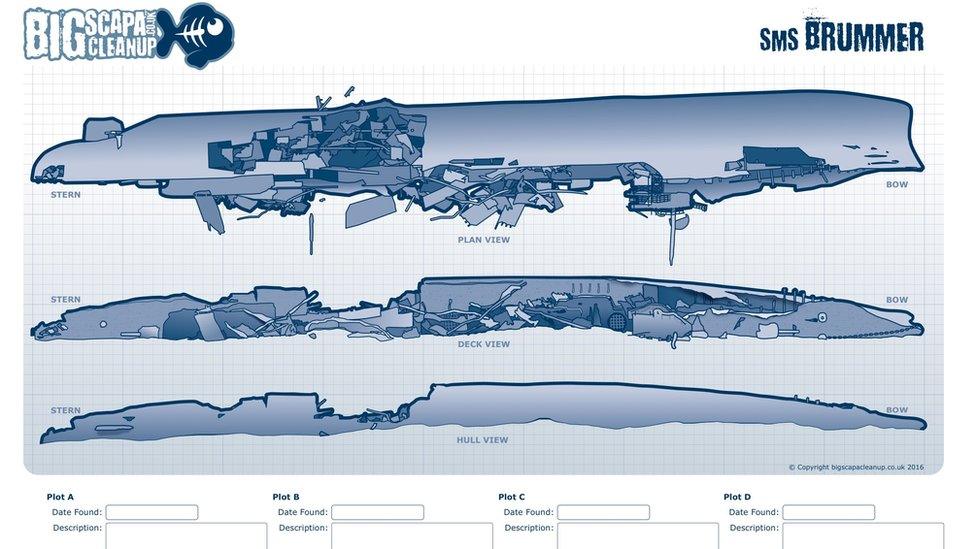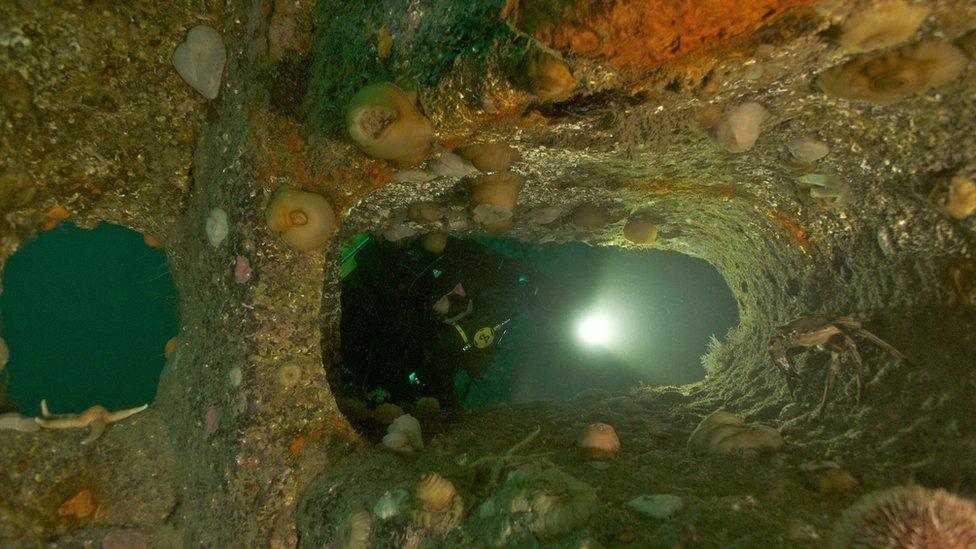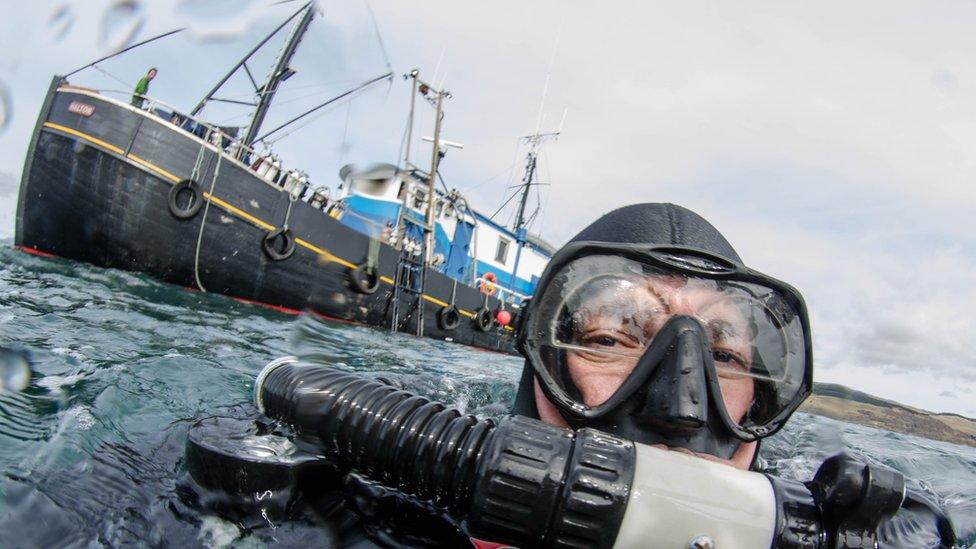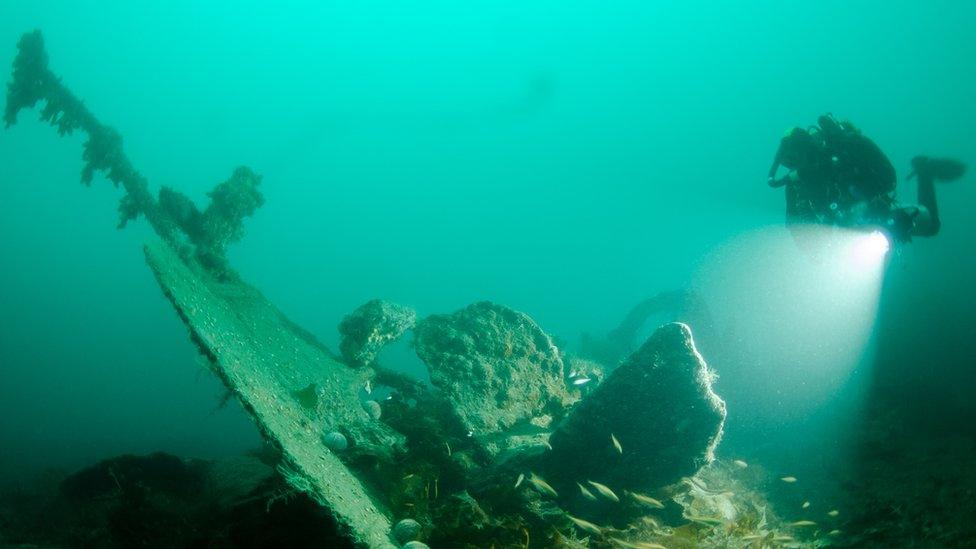Scapa Flow wrecks recorded in interactive maps
- Published
Divers have mapped several Scapa Flow wrecks ahead of the centenary in 2019
A detailed record of German warships scuttled in Scapa Flow has been created in preparation for the centenary of their sinking.
Interactive maps have been created by a team of scuba divers from the British Sub-Aqua Club (BSAC).
The maps will be used during efforts to clean up and protect the Orkney site.
The seven wrecks covered by the project have been mapped by illustrator Steve Jakeaway, a BSAC member from Gloucester.

He said: "The Scapa Flow wrecks are all in between 12 and 45 metres of water, but the visibility is not always great. Often even experienced divers are not sure precisely what they are looking at, especially if a wreck has capsized and everything is upside-down.
"The divers took it in turns to go down and photograph each of the wrecks. In order to get as accurate a picture as possible, we also got them to make their own sketches, and describe to me exactly what they had seen, including any nets or other debris."
The wrecks of the SMS Cöln, SMS Kronprinz Wilhelm, SMS Brummer, SMS Karlsruhe, SMS König, SMS Markgraf and SMS Dresden are off the coast of Orkney where they went down on 21 June, 1919.
They were among 74 ships of the German High Seas Fleet deliberately scuttled by their crews.

Scuba diver Richard Booth, from Tyneside, helped coordinate the team for the expedition.
He said: "The Karlsrhue is very broken up, but the Cöln is still intact. On the Kronprinz you can see a 12-inch gun that was fired at Jutland. Thirty six metres down the gun barrels are still there.
"The only other place you can see such guns is outside the British War Museum. If you just dropped in it would be difficult to see the guns but with these maps it will guide people to see these historic features.
"The fact that we are coming up to the centenary of the scuttling in 1919 means historically, that generations of people who took part in the First World War are all gone now, but it was a momentous event when the German battleships scuttled and sank themselves."

BSAC chief executive Mary Tetley said: "Preserving our underwater heritage and protecting the marine environment are both high on the agenda for BSAC and our members throughout the UK and we are pleased to be able to support this initiative.
"This is a fascinating project in the run up to the 2019 centenary of the scuttling of the German High Seas fleet, in the greatest loss of shipping ever recorded in a single day.
"Scapa Flow is one of Britain's most important marine heritage sites and it is important that these wrecks are preserved and their stories told to highlight the history of for future generations."
The interactive maps are being published on the Big Scapa Clean Up, external project website.
